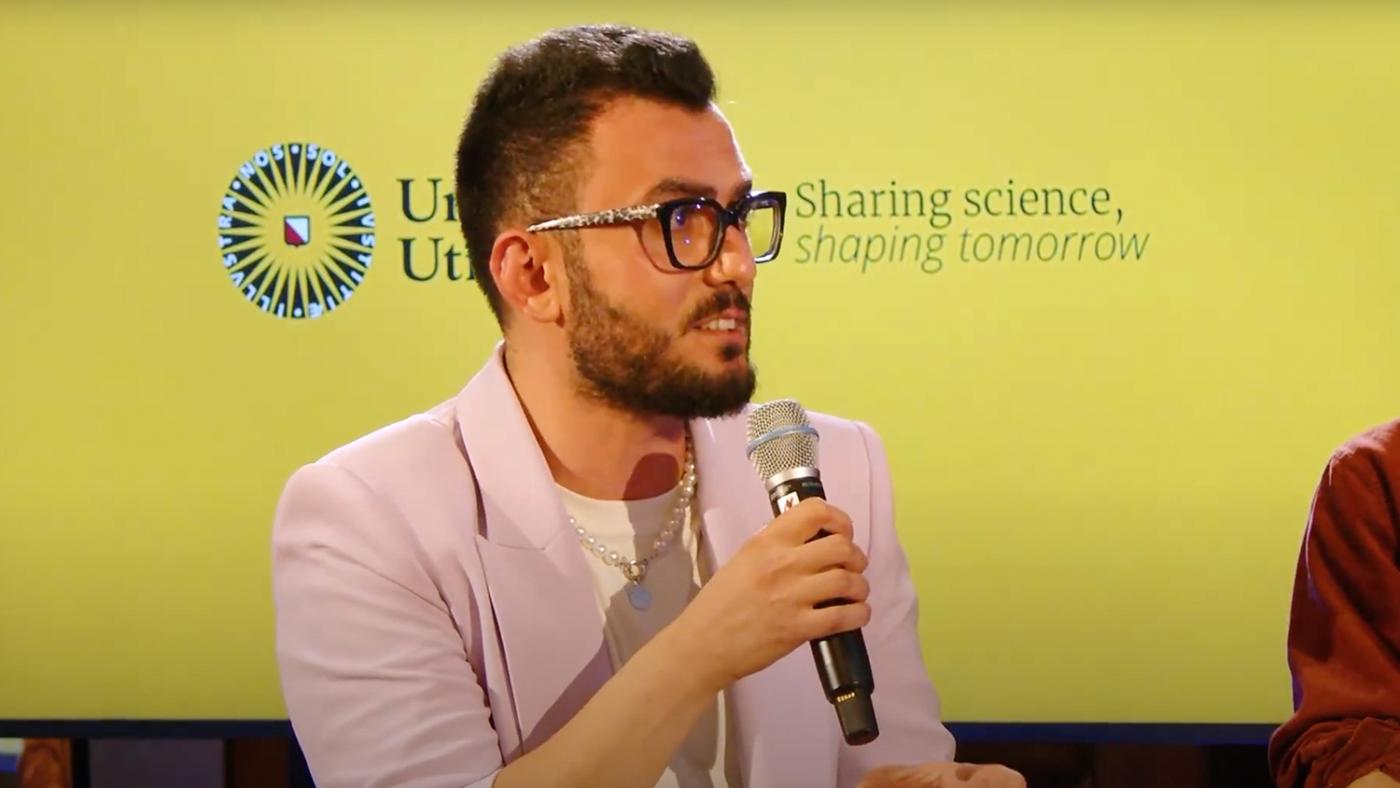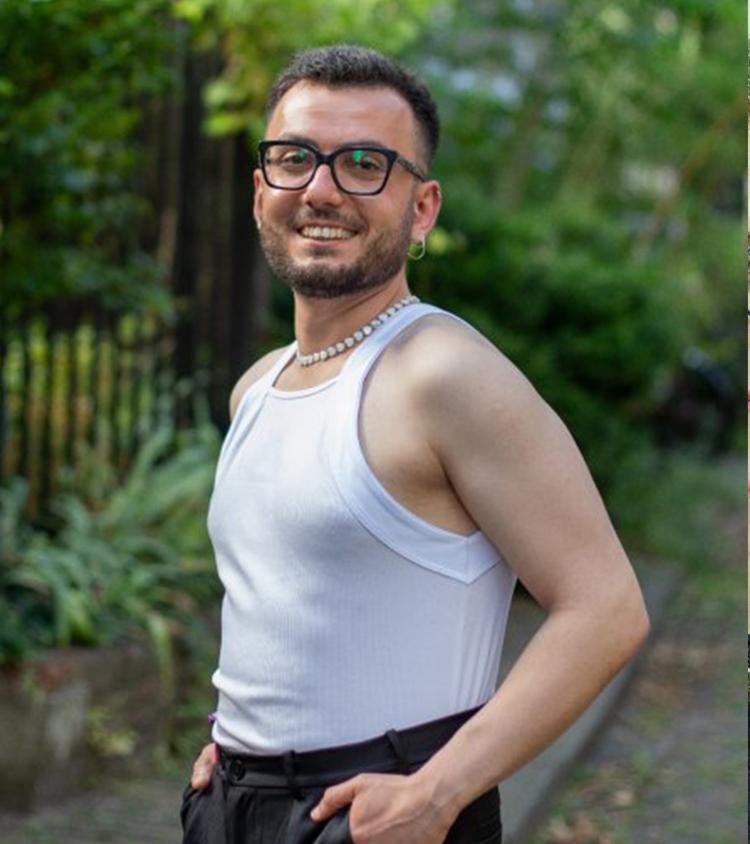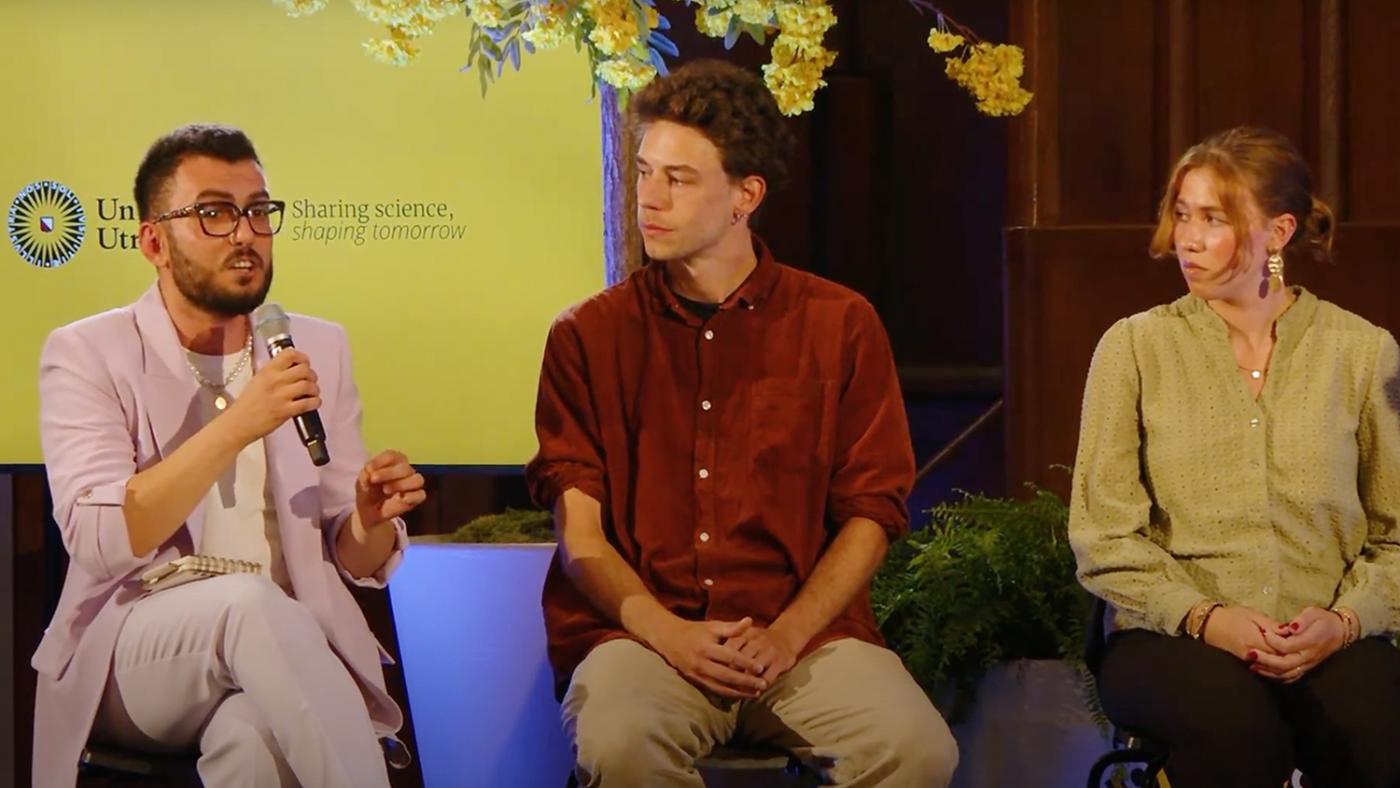Student Huseyin Ali Kudret wins Katadreuffe Prize
'Asylum law should be a compulsory part of a master of laws'

What made Huseyin “the most remarkable law student” of the past year? The jury considered multiple factors. They look for law students with character who contribute to their communities and society.
And that's exactly what Huseyin is. Aside from his studies, the student is committed to LGBTQIA+ refugees. Active in organisations such as COC Nijmegen and the Utrecht student group of Amnesty International, Huseyin strives to make a difference in the world. Both organisations focus on refugees's rights, giving them a sense of safety.
Labelled as a terrorist
Huseyin grew up in Turkey, where life was sometimes unpleasant. At the age of 18, Huseyin, who is non-binary, was arrested while protesting against police violence. Huseyin was suspected of terrorism and remained in prison for a few days. After that, an investigation tried to determine whether Huseyin was a terrorist or not. The case lasted nine years and Huseyin tried to live their life as normally as possible in the meantime. “I also became a lawyer”.
Huseyin completed a Bachelor of Laws at the University of Istanbul in 2015. During their bachelor's, Huseyin volunteered for Amnesty International Turkey and wrote articles for several magazines. They then chained the degree with a Master of Laws.
The verdict was pronounced while Huseyin was a Master's student. Not only was the student labelled as a terrorist, but they were linked to four different terrorist organisations. At the time, Huseyin was in Hungary doing research. They decided to flee, an idea the student had considered before because they no longer felt safe in Turkey due to their sexual orientation.

Huseyin Ali Kudret Photo: UU-REBO
Not safe in the asylum centre
Huseyin chose the Netherlands, a country they visited while researching in Hungary. "My favourite refuge would be Spain, but unfortunately they don't speak English very well, so I went to the Netherlands."
On January 31, 2022, he arrived at the asylum centre in Ter Apel, after which they were placed in the Rijnkade centre in Arnhem. In December 2022, Huseyin was granted refugee status.
As a non-binary person who is attracted to men, Huseyin says they did not always feel safe in the asylum centre. When they were assigned a home in Ede, Huseyin immediately registered as a volunteer at COC Nijmegen, an organisation that advocates for the interests of the LGBTQIA+ community. "Being in touch with them made me feel safer and gave me courage and motivation." Now, every two months, they organise informative lectures on the rights of refugees belonging to the LGBTQIA+ community.
English-taught education
Once Huseyin had their own home, they wanted to study again. Utrecht is closer to Ede than Nijmegen, so Huseyin looked into a Master's here. They got excited about an article by the Law lecturer Marjolein van den Brink, published on the university's website. Van den Brink stated that she always tries to put theory into practice, which appealed to Huseyin enormously: "I don't like academics but I do like academics who are practically oriented".
Asked to summarise his time in Utrecht, they say it was "a great experience". Huseyin: "It was the first time in my life that I was completely free and not discriminated against." For the first time, they felt completely normal.
Huseyin enjoyed the many societal topics covered by the lectures and the fact that the Master's was taught in English. "A whole new world opened up for me in Utrecht. I thought I already knew everything about human rights, but I discovered I still had a lot to learn".
Huseyin was one of the students interviewed onstage about human rights at the opening of the academic year.

Photo: screenshot from a video of UU's opening of the academic year
Making asylum law mandatory
Huseyin completed their Master's degree in 2024. They are now looking for a job, but that's not easy. Due to their refugee status, Huseyin is bound to the Netherlands. "I do not have sufficient command of the Dutch language yet, so I'm learning Dutch now." Huseyin is also taking several courses at Utrecht University to continue expanding his knowledge. Their ambition is to work with asylum law but, until then, Huseyin will continue to learn and work for LGBTQIA+ refugees.
Huseyin believes that there is room for improvement in the asylum procedure. For example, the reception process should take gender identity and sexual orientation into account to prevent some refugees from suffering discrimination, bullying or violence from other refugees.
They also have a tip for the Master's of Law at UU. "As far as I'm concerned, the programme should pay more attention to asylum law as it has many points of contact with human rights. However, the curriculum only discusses it to a very limited extent." If it were up to Huseyin, asylum law would become a compulsory part of the programme.